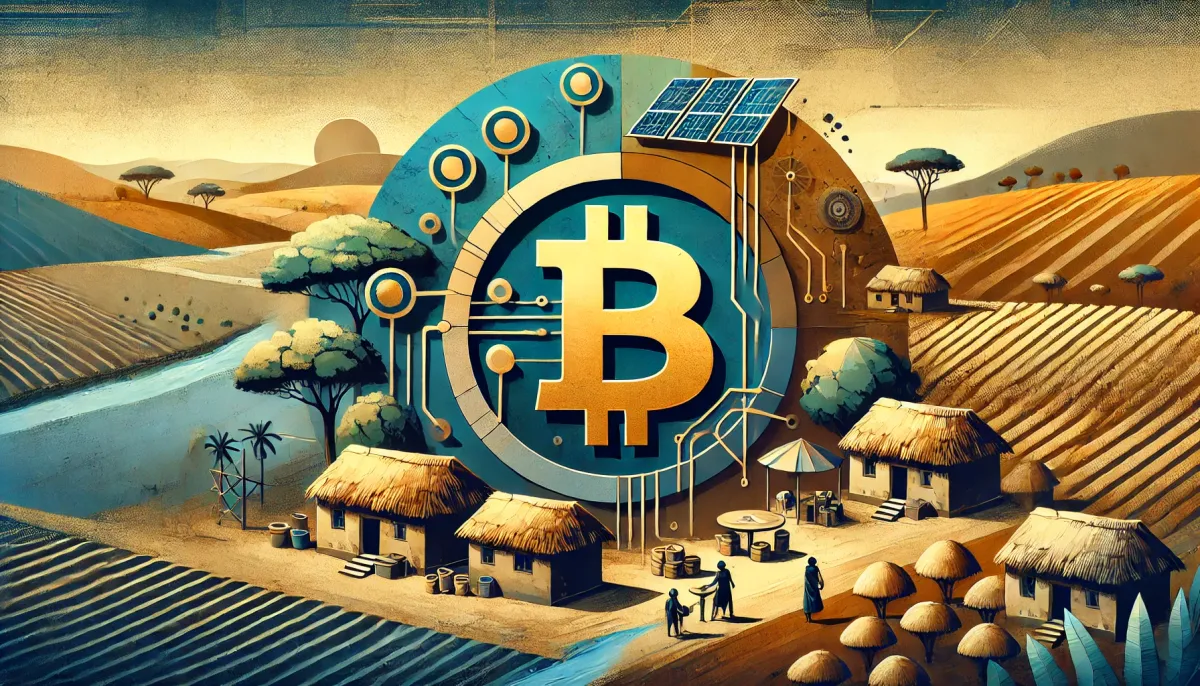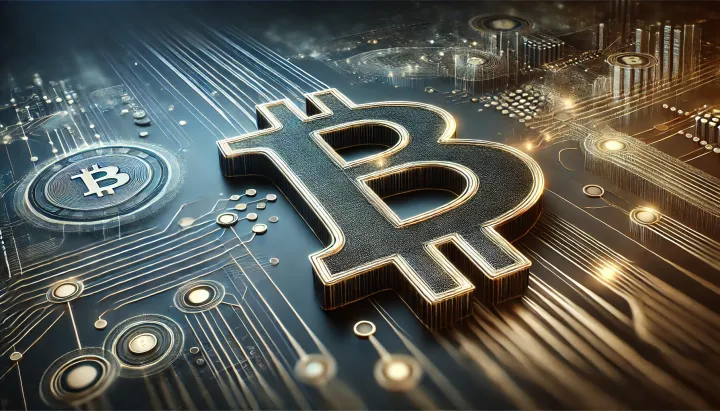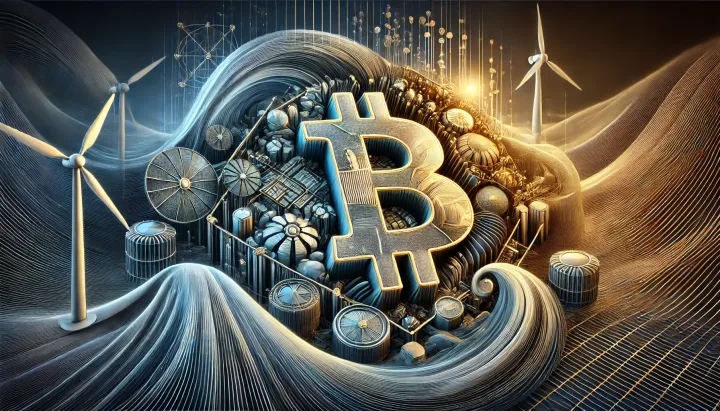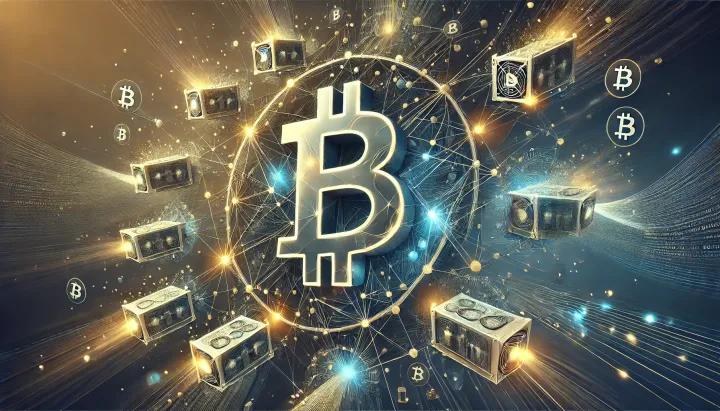Expanding Energy Access in Africa: How Bitcoin Mining is Powering Rural Communities
In the January 18, 2023 episode of What Bitcoin Did, guest Erik Hersman explains how his company, Gridless, collaborates with mini-grid providers to utilize stranded energy, energy that is produced but not consumed by the local communities.

Briefing Notes
My 'briefing notes' summarize the content of podcast episodes; they do not reflect my own views. If you have comments about this briefing note, please leave a comment below (requires signing up for a free blog subscription). Note that some of the podcast episodes I summarize may be sponsored: don't trust, verify, if the information you are looking for is to be used for decision-making.
Summary
In the January 18, 2023 episode of What Bitcoin Did, Peter McCormack interviews Erik Hersman of Gridless, exploring how Bitcoin mining is harnessing stranded energy in Africa to power rural communities. Gridless’s innovative model uses excess energy from mini-grids to mine Bitcoin, providing financial stability to energy providers and enabling affordable electricity access. The discussion highlights the broader implications of using Bitcoin mining to drive rural electrification and support sustainable development across Africa.
Take-Home Messages
- Bitcoin mining monetizes stranded energy in rural Africa, offering an economic solution for energy providers.
- Gridless uses mini-grids powered by renewable energy sources, such as hydro and solar, to expand electricity access.
- This model reduces electricity costs for rural communities, improving access to essential services like lighting and refrigeration.
- The scalability of mini-grid systems across Africa presents a significant opportunity for both energy development and Bitcoin adoption.
- Political stability, regulatory support, and infrastructure development are key to scaling Gridless’s operations across the continent.
Overview
The interview centers on Gridless, a company co-founded by Erik Hersman, which leverages Bitcoin mining to harness stranded energy from mini-grids in Africa. Mini-grids, which are small-scale power systems often fueled by renewable energy, generate surplus energy during low-demand periods. Gridless helps monetize this stranded energy by using it to mine Bitcoin, ensuring that energy providers remain financially viable while enabling rural communities to access affordable electricity. This model has proven particularly effective in regions where centralized grid infrastructure is either weak or non-existent, allowing local energy providers to expand their reach.
Africa faces significant energy challenges, with an estimated 600 million people lacking access to electricity. Gridless aims to solve this problem by supporting mini-grid operators with Bitcoin mining as a financial backstop. By tapping into Africa’s renewable energy potential, particularly hydro and solar, the company creates a win-win scenario: energy providers can monetize excess power, and communities gain access to cheaper and more reliable electricity. Hersman points out that this model not only improves living conditions but also has the potential to transform the energy landscape in Africa by facilitating rural electrification at scale.
Hersman also emphasizes the importance of scalability, noting that the model can be replicated across different regions and energy sources. By working with local partners and energy providers, Gridless seeks to expand its decentralized operations, improving energy access while contributing to the security and decentralization of the global Bitcoin network. However, Hersman acknowledges several challenges, including political instability and the need for stronger Bitcoin education and infrastructure to support wider adoption in Africa.
The podcast also touches on the broader potential of Bitcoin in Africa, particularly as a means of exchange and a tool for economic empowerment. While Bitcoin adoption is still limited in the region, the opportunities for growth are substantial, particularly in countries with unstable currencies or poor access to banking services.
Stakeholder Perspectives
- Energy Providers: Mini-grid operators benefit from monetizing stranded energy, ensuring financial sustainability and enabling further expansion of their services.
- Rural Communities: Access to affordable electricity improves living standards, supporting education, agriculture, and small businesses.
- Bitcoin Miners: Miners gain access to low-cost, renewable energy, reducing operational expenses and contributing to the security of the Bitcoin network.
- Policymakers: Gridless offers a scalable model for rural electrification that could be adopted as part of national energy strategies.
- Investors: The model provides both financial returns and social benefits, aligning with increasing demand for sustainable and decentralized energy solutions.
Implications
The success of Gridless’s model could have far-reaching implications for energy policy and rural development in Africa. By providing a sustainable financial model for mini-grid operators, Bitcoin mining helps solve the stranded energy problem while enabling broader access to affordable electricity. This approach could serve as a blueprint for rural electrification in other developing countries, especially in regions where centralized grid infrastructure is lacking or unreliable.
For policymakers, Gridless presents a potential pathway for achieving rural electrification goals without relying solely on government funding or international aid. The use of Bitcoin mining as an energy backstop allows private investment to play a key role in expanding energy access, while renewable energy sources help mitigate environmental concerns. However, political and regulatory risks must be carefully managed to ensure the long-term viability of such projects.
Future Outlook
By combining renewable energy with decentralized Bitcoin mining, Gridless offers a model that can scale across different regions and energy sources. The success of this approach hinges on overcoming several challenges, including political instability, regulatory uncertainties, and infrastructure limitations. However, with the right partnerships and investment, Gridless has the potential to transform the energy landscape in Africa.
Increasing Bitcoin adoption will be critical to maximizing the benefits of this model. Education and infrastructure improvements are necessary to help rural communities better understand and utilize Bitcoin, particularly in regions with limited technological access. The potential for Bitcoin to serve as both a means of exchange and a store of value in Africa could further accelerate its adoption, particularly in countries facing currency devaluation or limited access to banking services.
Information Gaps
- How can mini-grids in Africa capture and utilize stranded energy for optimal Bitcoin mining and community electrification? Solving this issue is crucial for scaling Gridless’s model and ensuring that no energy goes to waste. Research into more efficient methods of capturing and utilizing stranded energy would benefit both energy providers and miners.
- What are the most effective financial models for reducing electricity costs in rural communities through Bitcoin mining? Developing viable financial models could have a significant societal impact, improving living standards while supporting the financial sustainability of mini-grids.
- How can political risks be mitigated when deploying Bitcoin mining and energy projects in politically unstable African nations? Understanding how to manage political instability is key to ensuring the safety and longevity of energy projects in high-risk regions, which could attract more investment.
- How can education and training on Bitcoin be expanded to improve adoption rates in rural African communities? Scaling Bitcoin adoption will require significant educational efforts, particularly in areas where technological infrastructure is limited.
- What infrastructure investments are needed to support the expansion of mini-grid-powered Bitcoin mining in rural Africa? Identifying key infrastructure investments will be critical to scaling both Bitcoin mining and energy access efforts across the continent.
Broader Implications
Energy Access in Africa
The Gridless model has the potential to revolutionize energy access in Africa by providing a scalable and sustainable solution to harness stranded energy. With 600 million Africans lacking access to electricity, the ability to leverage Bitcoin mining as a financial backstop for mini-grids creates a pathway for rural electrification. This model could be applied in other developing regions, demonstrating how decentralized energy systems can thrive where traditional grid infrastructure is inadequate or expensive to build.
Renewable Energy Utilization
The emphasis on renewable energy sources such as hydro and solar aligns Gridless with global sustainability goals. By creating a market for stranded energy, Bitcoin mining encourages the development of renewable energy projects, helping to reduce Africa's dependence on fossil fuels. The success of this model could push other regions to explore similar solutions, driving global investment in green energy initiatives, particularly in areas where surplus energy is an issue.
Economic Development and Bitcoin Adoption
For rural African communities, access to affordable and reliable electricity can transform economic activities, from agriculture to small-scale industries. As Bitcoin mining reduces electricity costs, communities can benefit from improved living standards and new economic opportunities. In parallel, broader Bitcoin adoption could provide financial services to populations without access to traditional banking, helping people save, transact, and hedge against inflation. Increased infrastructure and educational support will be necessary to maximize these benefits.
Global Bitcoin Network Security
By decentralizing Bitcoin mining across many smaller sites in Africa, Gridless contributes to the security and resilience of the global Bitcoin network. This approach contrasts with the concentration of mining operations in specific regions, creating a more geographically distributed mining network. The proliferation of small-scale mining operations across Africa could strengthen the overall network and reduce risks associated with centralization in Bitcoin mining.



Comments ()